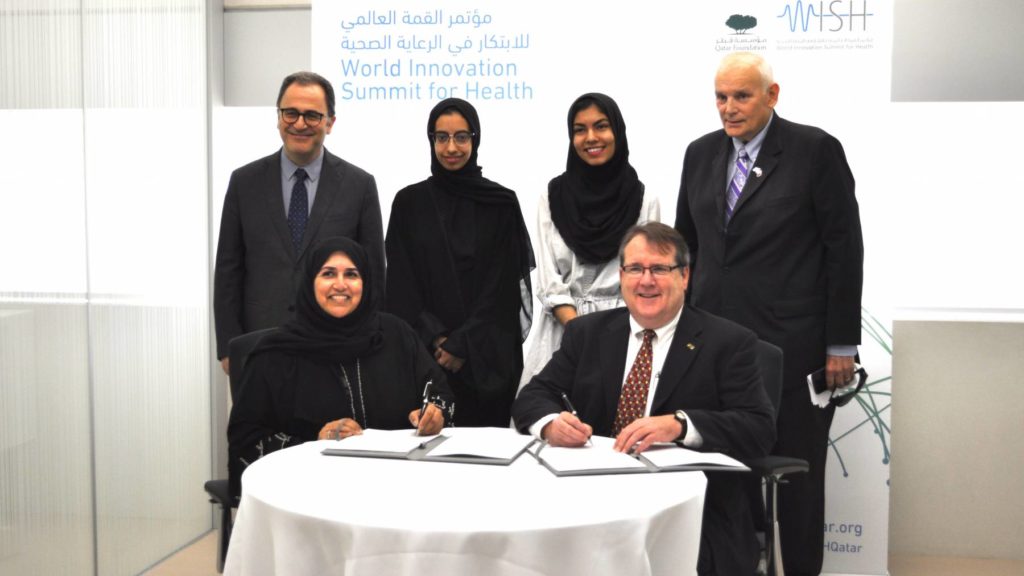GU-Q student awarded Carter Center fellowship

A Georgetown University in Qatar (GU-Q) student has been awarded the Rosalynn Carter Fellowship for Mental Health Journalism. Asma Al-Jehani is the first Qatari student to be selected and one of only two non-practicing journalists to be awarded the Carter Center fellowship.
With mental illnesses being some of the most unrecognized, and under-reported health problems in the world, The Rosalynn Carter Fellowships for Mental Health Journalism aim to Develop a group of better-informed professional journalists to report accurate information and produce work that reflects an understanding of mental health issues.
Asma Al-Jehani, says she was introduced to the Carter Center through World Innovation Summit for Health (WISH). At the journalism training program she learnt how to use correct terminology, and to report on topics related to mental health or mental illnesses in an informed manner.
The GU-Q senior says the selection made her understand journalism better in contrast to politics; she noted: “having been closely acquainted with many journalists during the WISH summit, I realized Journalists went into a great depth documenting these stories, but I take them further into advocacy because I am interested in human rights, women’s rights, migrant workers’ rights.” She adds that despite their differences in nature, journalism and human rights advocacy intersect in many ways: “Journalists carry out a lot of research on these issues as well. But I am convinced that journalists cannot be totally impartial, because we are only human.”
Asma’s project works on mental health for migrant workers in Qatar. It is unprecedented and involves talking to the workers about the human aspect of their lives. Since there is very limited statistical data available on issues other than pay, safety, housing, healthcare, the human dimension still needs more attention, which makes it a challenge for her.
Asma points out that she plans to continue her studies in human rights field after graduation but for the time being, she hopes to make a difference: “I don’t compare migrant labor standards in the Gulf with international standards, I only want foreign workers living in Qatar to feel welcome, safe, not intimidated, not humiliated, or not taken advantage of. Those are my standards. I am looking forward to presenting my work in Atlanta next year.”